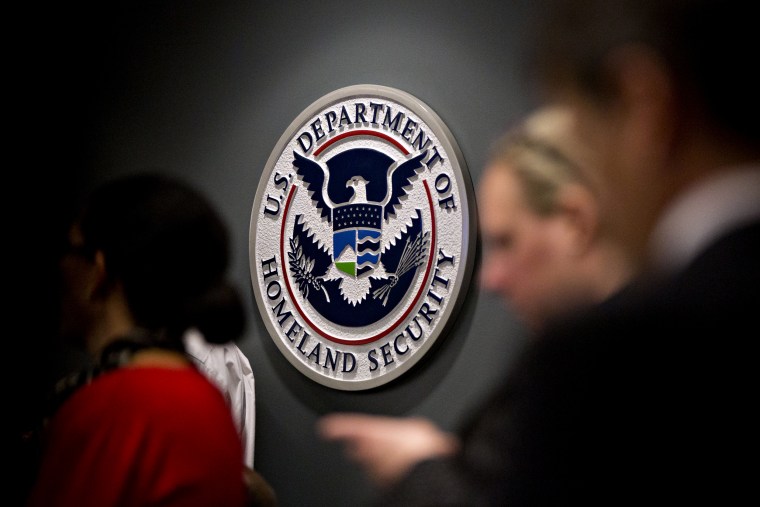The Department of Homeland Security's intelligence assessments have been in the news quite a bit lately, starting last week with reports that top officials within the cabinet agency delayed a bulletin on foreign powers targeting our elections.
Soon after, a separate DHS intelligence bulletin warned about Russian efforts to undermine our elections with false claims, which happened to echo Donald Trump's own talking points.
But yesterday's news was even more extraordinary, as the public learned that a Homeland Security whistleblower is accusing the agency's top leaders of manipulating intelligence reports to conform with the White House's political agenda. NBC News reported yesterday afternoon:
A written complaint by Brian Murphy, who was a top Department of Homeland Security intelligence analyst, accuses top DHS officials of blocking analysis of Russian election interference, watering down intelligence reports about corruption and violence fueling a refugee flow from Central America, and "modify(ing) assessments to ensure they matched up with the public comments by President Trump on the subject of ANTIFA and 'anarchist' groups."
The House Intelligence Committee released the 24-page complaint to the public yesterday, and it's an extraordinary document -- not just in the seriousness of the allegations of wrongdoing, but also in the scope and breadth of the accusations against acting DHS Secretary Chad Wolf and acting Director of US Citizenship and Immigration Ken Cuccinelli, both of whom were appointed by the president. (By some accounts, both men are serving in their posts illegally.)
On domestic matters, for example, Homeland Security's political appointees are accused of, among other things, downplaying the threat posed by white supremacists, choosing instead to emphasize far-left threats.
And on foreign matters, the whistleblower alleged he was directed to curtail intelligence reports on Russian efforts to interfere in our elections, at least in part because the information made Trump "look bad."
As the Washington Post reported, Murphy's whistleblower complaint alleged "that on two occasions he was told to stand down on reporting about the Russian threat," instructions he believed undermined national security. The article added:
Murphy alleges an ongoing effort by senior officials to obfuscate the threat from Russia in particular. He claimed that in May, Wolf told him to stop producing intelligence assessments on Russia and shift the focus on election interference to China and Iran. He said Wolf told him "that these instructions specifically originated from White House National Security Advisor Robert O'Brien."
The circumstances are extraordinary. A serving Trump administration official is coming forward with detailed allegations about the Department of Homeland Security deliberately distorting intelligence for brazenly political reasons, indifferent to the consequences for the nation.
What's more, as Rachel noted on the show last night, this isn't just a situation in which intelligence reports were altered for the president because officials didn't want to endure another Trump tantrum; the materials that were politically altered were prepared for the FBI and other law-enforcement agencies. That, of course, is the point of DHS bulletins: to alert officials to possible domestic threats.
In this instance, if the whistleblower complaint is accurate, it means Trump's Homeland Security guys distorted intelligence so that US law enforcement wouldn't know, among other things, about Russian efforts to interfere in our elections, which in turn makes it more difficult for US law enforcement to protect the country.
The practical consequences of such a move are, alas, obvious: it makes the United States more vulnerable, which appears to be a price the presidential appointees atop the Department of Homeland Security are willing to pay.

